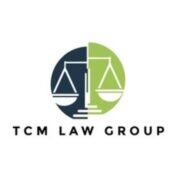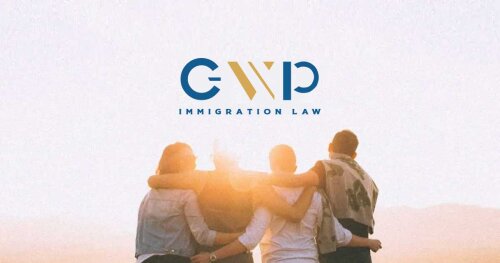Best Marriage Lawyers in Las Vegas
Share your needs with us, get contacted by law firms.
Free. Takes 2 min.
Free Guide to Hiring a Family Lawyer
List of the best lawyers in Las Vegas, United States
About Marriage Law in Las Vegas, United States
Marriage in Las Vegas is governed by Nevada state law and administered locally through county clerks and family courts. Nevada is known for relatively simple procedures to obtain a marriage license, no state residency requirement, and recognition of same-sex marriages. While getting married in Las Vegas can be fast and straightforward, important legal details - such as property rights, age limits, name changes, and recognition of out-of-state marriages - can have long-term consequences. Understanding the basic steps and legal implications helps couples make informed choices and avoid later disputes.
Why You May Need a Lawyer
Not every couple needs a lawyer to get married, but legal advice can be essential in a number of common situations. You may want to consult a family law attorney if you face any of the following:
- You want a prenuptial or postnuptial agreement to protect assets, business interests, or future inheritance rights.
- One party is not a U.S. citizen and you need help with immigration-related issues tied to marriage.
- There are complex financial arrangements, significant debt, or business ownership that will be affected by marriage or a future divorce.
- One party is a minor, or there are questions about legal capacity to marry due to intoxication, mental illness, or coercion.
- You need to resolve family law matters that may follow marriage, such as custody, child support, or domestic violence protections.
- There is a dispute about the validity of a previous marriage, potential bigamy, or recognition of a foreign marriage.
- You need help obtaining, correcting, or using official marriage records for name changes, benefits, or legal claims.
Local Laws Overview
Key legal points to know about marriage in Las Vegas and Nevada:
- Marriage license - Couples must obtain a marriage license from the county clerk or marriage license bureau in the county where the ceremony will take place. Both parties generally must appear, provide identification, and pay the required fee.
- Residency and waiting period - Nevada does not require state residency to marry. There is generally no long waiting period between issuance of a marriage license and the ceremony, so couples can often marry shortly after obtaining a license.
- Age and consent - The legal age to marry without parental permission is 18. Individuals under 18 may have special requirements such as parental consent and/or court approval. If age is a factor, seek local guidance before applying for a license.
- Who may solemnize - Ceremonies may be performed by authorized officiants recognized under Nevada law, including judges, certain public officials, and ordained clergy. Some counties also offer civil ceremonies performed by county staff or other authorized persons.
- Witnesses and filing - Most ceremonies require one or more witnesses to sign the marriage certificate. After the ceremony, the signed license must be returned to the issuing office for official filing and issuance of a marriage certificate.
- Name change - Marriage is a common reason to change a name. The certified marriage certificate is typically the primary document used to update Social Security records, driver license, bank accounts, and other records.
- Property and divorce implications - Nevada is a community property state, which affects how assets and debts accumulated during marriage are treated if spouses later divorce. Nevada law also provides for no-fault divorce on grounds such as incompatibility, and has specific residency requirements for filing for divorce.
- Recognition of other marriages - Marriages legally performed in other states or countries are generally recognized in Nevada if they were valid where celebrated.
Frequently Asked Questions
How do I get a marriage license in Las Vegas?
Apply at the county clerk or marriage license bureau in the county where you plan to marry. Both parties usually must appear in person, provide valid identification that proves age and identity, complete the application, and pay the required fee. After the license is issued you can have the ceremony and the officiant will file the signed license for registration.
What identification and documents are typically required?
Commonly requested items include government-issued photo ID such as a driver license or passport, proof of age or birth certificates if ID does not show age, and Social Security numbers if applicable. If either party was previously married, you may need to provide the date of divorce or a death certificate for a deceased spouse. Requirements vary by county, so confirm with the issuing office before your visit.
Is there a waiting period before I can marry?
In many cases there is little or no waiting period, meaning you can marry soon after obtaining the license. However, local administrative procedures may apply, so check with the county clerk or marriage license office for any timing details.
Can same-sex couples get married in Las Vegas?
Yes. Same-sex marriages are recognized and permitted under federal and state law. Same-sex couples follow the same licensing and ceremony procedures as opposite-sex couples.
Do I need a blood test or medical exam?
No. Nevada does not require premarital blood tests or medical exams to obtain a marriage license. Medical testing is not a standard requirement for marriage licenses in most U.S. jurisdictions.
Can a marriage performed in another state or country be recognized in Nevada?
Generally, yes. Nevada recognizes marriages legally performed in other states and many foreign countries, provided the marriage was valid where it was performed. If the union raises unusual legal issues, consult an attorney for advice on recognition and legal effects.
What about common-law marriage - does Nevada recognize it?
Nevada does not generally create new common-law marriages. However, Nevada courts may recognize a common-law marriage that was validly established in another state. If you believe a common-law marriage exists, seek legal guidance to understand recognition and proof requirements.
How do I change my name after marriage?
After the marriage is legally recorded, the certified marriage certificate is the primary document used to change your name with federal and state agencies, financial institutions, and other organizations. Typical steps include updating your Social Security record, then your driver license or state ID, and notifying banks, employers, and other entities of your new name.
Do I need a lawyer to get married?
For most couples obtaining a marriage license and having a ceremony, an attorney is not required. You may want legal help for prenups, immigration matters, disputes about prior marriages, or when complex financial or parental issues are involved. A family law attorney can explain rights and prepare documents if needed.
What should I do if I suspect fraud or coercion in a marriage?
If you suspect fraud, coercion, or that one party lacked the capacity to consent, contact an attorney promptly. There may be legal remedies including annulment or other civil or criminal actions. If you are in immediate danger, contact local law enforcement or emergency services.
Additional Resources
Below are the types of local offices and organizations that can provide forms, records, guidance, or legal assistance related to marriage in Las Vegas:
- County marriage license bureau or county clerk for the county where the ceremony will take place.
- State vital records office to obtain certified copies of marriage certificates.
- Local family or district court offices for questions about annulment, divorce, custody, or related court filings.
- Nevada State Bar or local bar association lawyer referral services for help finding a family law attorney.
- Legal aid organizations and community clinics offering low-cost or pro bono family law assistance.
- Domestic violence shelters and hotlines for those needing protection or emergency legal help.
- Immigration legal services for couples with noncitizen partners who need immigration advice related to marriage.
Next Steps
If you need legal assistance related to marriage, follow these practical steps:
- Gather documents - collect government-issued IDs, birth certificates, divorce decrees or death certificates if applicable, and any financial documentation relevant to agreements you may want.
- Identify the issue - decide whether you need help with routine licensing, a prenuptial agreement, immigration concerns, or resolving a dispute. Clear goals help you find the right lawyer or resource.
- Contact local offices - call or visit the county clerk or marriage license bureau to confirm specific document and fee requirements for your location.
- Seek legal help when needed - use a lawyer referral service, read attorney profiles, and schedule consultations. Prepare questions about experience with relevant matters, fees, and likely outcomes.
- Consider alternatives - if you and your partner want to resolve financial or parenting issues without litigation, ask about mediation or collaborative law options.
- Keep records - retain certified copies of your marriage certificate and any agreements. These documents are often required for name changes, benefits, and future legal proceedings.
Getting clear, local advice early can prevent problems later. If your situation involves complex finances, immigration, prior marriage issues, or safety concerns, consult a qualified family law attorney in Las Vegas promptly.
Lawzana helps you find the best lawyers and law firms in Las Vegas through a curated and pre-screened list of qualified legal professionals. Our platform offers rankings and detailed profiles of attorneys and law firms, allowing you to compare based on practice areas, including Marriage, experience, and client feedback.
Each profile includes a description of the firm's areas of practice, client reviews, team members and partners, year of establishment, spoken languages, office locations, contact information, social media presence, and any published articles or resources. Most firms on our platform speak English and are experienced in both local and international legal matters.
Get a quote from top-rated law firms in Las Vegas, United States — quickly, securely, and without unnecessary hassle.
Disclaimer:
The information provided on this page is for general informational purposes only and does not constitute legal advice. While we strive to ensure the accuracy and relevance of the content, legal information may change over time, and interpretations of the law can vary. You should always consult with a qualified legal professional for advice specific to your situation.
We disclaim all liability for actions taken or not taken based on the content of this page. If you believe any information is incorrect or outdated, please contact us, and we will review and update it where appropriate.













